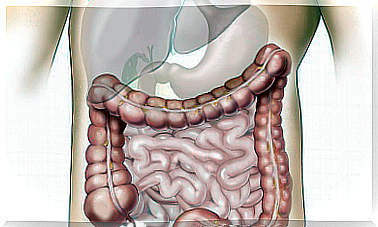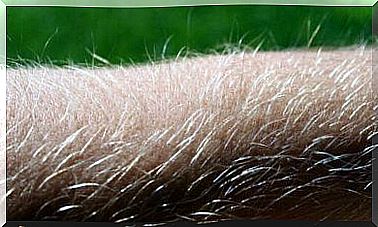Thyroid Nodules: Symptoms And Causes
We speak of thyroid nodules to refer to cell growths in the thyroid gland in the form of bumps, points or turgidity. Some of them are detectable by simple palpation, although most of the nodules are small and cannot be felt from the neck.
Thyroid nodules can be solid or cystic. A cystic nodule is one that contains fluid inside and is covered by a capsule that contains it. Solid nodules, on the other hand, are solid throughout their structure.
They can be located in different portions of the thyroid gland, which is made up of two lobes joined by a central minor segment. The gland is in the neck and under normal conditions it is not possible to feel it from the outside.
As the thyroid has among its functions to make the hormones T3 and T4, it may turn out that a nodule in the gland is functional. This means that it is capable of secreting hormones like the rest of normal tissue. In these cases, symptoms related to this hormonal overproduction appear.
Most thyroid nodules are benign and, among them, many are only detected accidentally in a doctor’s office for another reason. In any case, due to the small percentage of nodules that respond to thyroid cancer, the complementary methods necessary for the diagnosis must be carried out.
Causes of thyroid nodules
The causes behind thyroid nodules are varied, from alterations in diet to the proliferation of malignant cells. Let’s see some of the most important:
Lack of iodine in the diet
When the microcomponent iodine is not present in sufficient quantity in the food we eat, the thyroid gland can form nodules. This classic and historical cause of thyroid disease led several countries to legislate the obligation to add iodine artificially to many foods, including table salt.
These laws appeared in times when it was very common for certain regions of the world to have a high incidence of goiter; an enlarged thyroid disease due to lack of iodine.
Thyroiditis
Thyroiditis is a term for inflammation of the thyroid gland. When the inflammation is chronic and persistent, it can generate nodules. One of the best known varieties is Hashimoto’s thyroiditis, the symptoms of which are hypothyroidism.
Proliferation of normal thyroid cells
In some circumstances, the normal cells of the thyroid overgrow and form a nodule. It is known as a thyroid adenoma and it is benign.
The problem with adenoma is that it can be functional, that is, capable of producing hormones and releasing them into the blood. This can lead to hyperthyroidism.
Fluid build-up
Thyroid nodules can be cystic, that is, cavities filled with fluids. They are benign and usually nonfunctional, that is, unable to produce hormones.

Malignant cell proliferation
The most dangerous form of thyroid nodules is thyroid cancer. Luckily it is a very small portion of the cases. With early detection, it is approachable with treatments and surgery to prevent its progression.
Symptoms of thyroid nodules
Thyroid nodules do not usually cause symptoms because they tend to be small and non-functional. In many cases, they are discovered by performing a thyroid ultrasound for another reason, or by performing a CT scan of the neck region.
When the nodule is detectable from the outside by palpating the neck, then we are in the presence of a sufficiently large formation. These situations can be perceived by a doctor when performing the physical examination or by the patient himself.
If there are other symptoms alongside the detected nodule, such as weight loss, episodes of profuse sweating, changes in heartbeat, or difficulty swallowing, then malignancy of the nodule is suspected. Although ultimately the definitive diagnosis may be benign, the presence of these signs makes it necessary to accelerate the performance of complementary methods.
On the other hand, if we are dealing with functional thyroid nodules capable of producing hormones and dumping them into the bloodstream, then the symptoms will be those of hyperthyroidism.
There will be tachycardia, lack of strength, nail and hair changes, diarrhea, irritability, and lack of weight gain despite increased food intake.

Diagnosis for thyroid nodules
Before the consultation for the palpation of a thyroid nodule or before the appearance of the same in an examination for other causes, the doctor will request a series of studies to characterize the lesion. Among these studies will be:
- Thyroid hormone dosage: T4 and TSH levels will be measured through a blood test.
- Thyroid ultrasound: if not previously performed, it is the first-step study to address the thyroid nodule. In the first instance, it allows differentiating between solid and cystic nodules, in addition to measuring their size.
- Puncture biopsy: if the nodule is suspicious of malignancy, a biopsy procedure will be scheduled. It consists of inserting a very fine needle into the gland to extract cells from the nodule that will be analyzed under a microscope. Currently the puncture is performed on an outpatient basis, without requiring hospitalization, and generally only with local anesthesia.
Thyroid nodules can appear as a consequence of various diseases that affect the thyroid gland. Although they are usually benign, a proper diagnosis is required to rule out that they do not pose a serious problem. Therefore, before any sign, it is necessary to consult.









